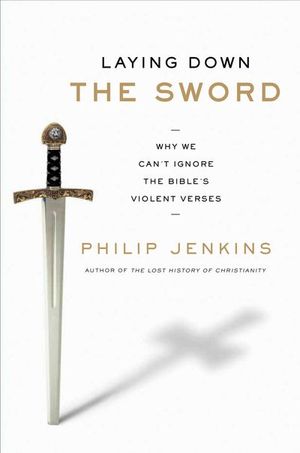Laying Down the Sword
“One of America's best scholars of religion” (The Economist) examines the Bible's most violent verses and explains how rereading them strengthens faith.
Commands to kill, to commit ethnic cleansing, to institutionalize segregation, to hate and fear other races and religions—all are in the Bible, and all occur with a far greater frequency than in the Qur'an. But fanaticism is no more hard-wired in Christianity than it is in Islam. Christians cannot engage with neighbors and critics of other traditions—nor enjoy the deepest, most mature embodiment of their own faith—until they confront the texts of terror in their heritage.
Philip Jenkins identifies the “holy amnesia” that, while allowing scriptural religions to grow and adapt, has demanded a nearly wholesale suppression of the Bible's most aggressive passages, leaving them dangerously dormant for extremists to revive in times of conflict. Jenkins lays bare the whole Bible, without compromise or apology, and equips us with tools for reading even the most unsettling texts, from the slaughter of the Canaanites to the alarming rhetoric of the book of Revelation.
Laying Down the Sword presents a vital framework for understanding both the Bible and the Qur'an, gives Westerners a credible basis for interaction and dialogue with Islam, and delivers a powerful model for how a faith can grow from terror to mercy.
BUY NOW FROM
COMMUNITY REVIEWS

